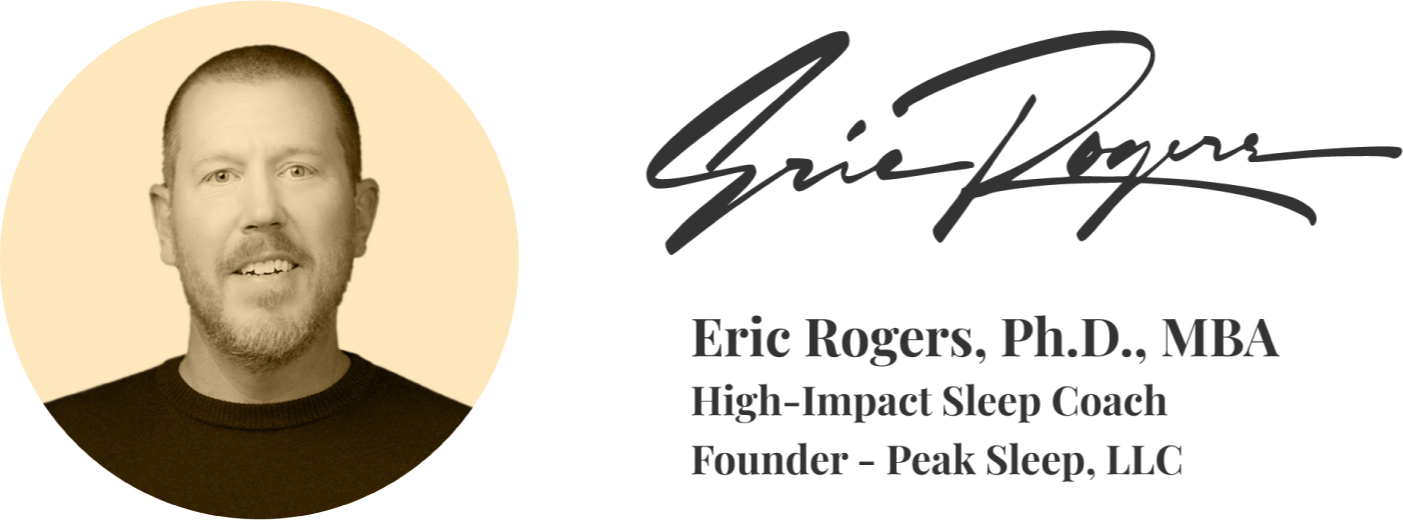
Sleep on It - How sleep helps us solve complex problems
I’m sure you’ve experienced this before. You’ve been stuck on a complex problem and no matter how much time you devote to it; you simply can’t solve it. You finally put it aside for the day, go to bed, and when you wake up the solution is suddenly crystal clear.
It’s pretty cool but why is it happening?
Sleep - Your Brain's Secret Weapon
When it comes to cognitive performance, here are a few ways sleep prepares our brains for critical thinking and complex problem solving.
- Memory Consolidation: During slow-wave sleep, your brain transfers short-term memories to long-term storage. This process is crucial for retaining complex information you've learned during the day.
- Synaptic Pruning: Your brain actually becomes more efficient during sleep. It prunes away weak synaptic connections and strengthens important ones, essentially decluttering your neural pathways.
- Neuroplasticity Boost: Sleep enhances your brain's ability to form new neural connections, a key factor in learning and adapting to new challenges.
- Glymphatic System Activation: During deep sleep, your brain's waste removal system kicks into high gear, clearing out toxins that can impair cognitive function.
- Pattern Recognition: Sleep helps your brain identify underlying patterns in complex data, crucial for strategic decision-making.
- Emotional Processing: Sleep regulates the amygdala, improving emotional stability and decision-making under pressure.
- Cognitive Flexibility: Well-rested brains show increased activity in the prefrontal cortex, enhancing your ability to adapt strategies when faced with new information.
But how does our brain solve problems while we sleep?
Numerous studies have shown improved problem solving, especially for difficult or novel problems, after a good night’s sleep. For example, in 2021 a group of researchers found that participants who slept after being presented with a challenging problem where able to solve it 62% of the time the following morning. Only 24% of the participants who were presented with the problem in the morning, stayed up all day, and then tried to solve it in the evening where successful.
How is this happening?
Sleep boosts problem-solving in two main ways:
- Slow Wave Sleep: • Organizes memories • Finds general patterns from specific experiences
- REM Sleep: • Brain becomes highly active • Links unrelated ideas in new way?
These stages alternate all night, creating a powerful combination:
- Organizing information, then creatively mixing it up
This process is why sleep often leads to:
- "Aha!" moments
- Creative solutions to tough problems
Think of your sleeping brain as a sophisticated library system. During Slow Wave Sleep, our brain organizes and categorizes memories from the day, while in REM sleep, our brain uses this well-organized system to make unexpected connections, pulling ideas from different sections to generate innovative solutions.
Client of the Week: Sarah, 34, Marketing Executive
What prompted Sarah to reach out:
- Increasing fatigue (never felt rested) and exhausted by the end of the day
- Becoming much more irritable (had just ‘gone off’ on someone in the grocery store a week before and was embarrassed).
- Feeling mentally stuck, unproductive, and lacking in creativity at work
In 4 weeks, Sarah was getting about an hour more sleep per night, but more importantly, it was high quality sleep. She was feeling well rested and more mentally sharp. Her mood improved and, thankfully, there were no more grocery store incidents!
By really getting to know Sarah’s sleeping habits, biological preferences, and lifestyle factors, we were really able to dial in a sleep plan that met her sleep needs but also worked with her busy schedule.
“It had gotten to the point that I was pretty desperate and new something needed to change. I honestly thought I’d been taking pretty good care of myself. I was exercising and eating pretty well but I definitely wasn’t prioritizing sleep. This has really been a game changer for me!”
Have a great day and, hopefully, a restful night!
- Eric
When you're ready to fix your sleep, here's how I can help:
- I'm a high-impact sleep coach with a PhD, board certifications, and years of experience working with high performers like the Navy SEALs, business leaders, and professional sports teams. My sole focus these days is helping busy professionals achieve more, perform better, and lead more fulfilling lives by fixing their sleep.
- If you haven't figured out what Sleep Zone you're in yet, that's a great place to start. Developing a plan that works for you depends on this information. Find out where you stand by taking the Sleep Zone Quiz.
- Once you know your Sleep Zone, the next step is to book a free 15 minute strategy session with me. We can discuss your unique situation, begin to set goals, and figure out if my coaching program is right for you.




